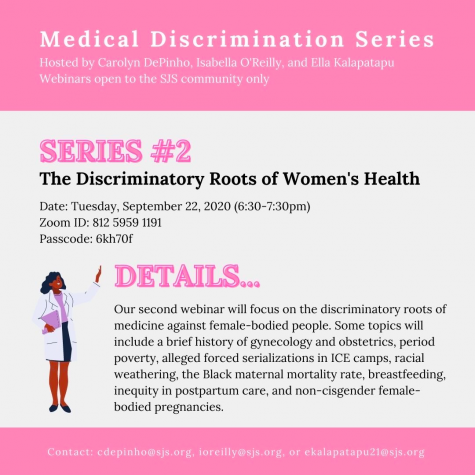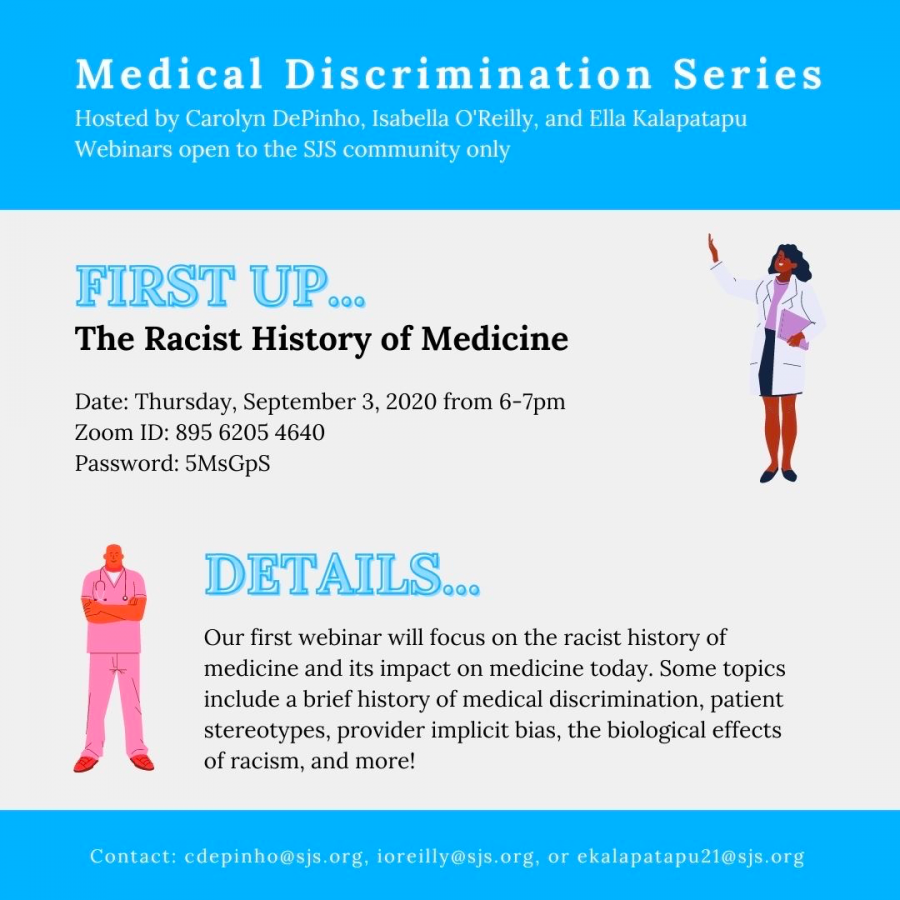Seniors create webinars on medical discrimination against women, people of color, LGBTQ+ community
The first webinar on Sept. 3 covered racism in a medical setting, from the mental and physical effects of racism on BIPOC to common stereotypes held by practitioners.
October 21, 2020
Black women are over twice as likely to die in childbirth than white women are. Black patients are half as likely to be prescribed pain medication than white patients are. Black, indigenous and people of color (BIPOC) are less likely to seek medical attention due to racism in medical environments.
Seniors Carolyn DePinho, Isabella O’Reilly and Ella Kalapatapu created a virtual series of webinars to educate the St. John’s community on medical discrimination against women, people of color and the LGBTQ+ community. Each webinar took around one week of research.
“I still think there are a lot of hold in terms of our ability as students to provide in-depth information since we have only scratched the surface of this topic,” DePinho said. “I wish we could bring in a professional.”
Freshman Mackenzie Rice thought the webinar on Sept. 22 over female discrimination in medicine was informative.

“Having these webinars so we can learn about [discrimination against patients] is really helpful, just to be more aware,” Rice said. “As somebody who’s white, you’re not necessarily taught or you don’t necessarily see the discrimination in systems around us.”
The first webinar on Sept. 3 covered racism in a medical setting, from the mental and physical effects of racism on BIPOC to common stereotypes held by practitioners. The second focused on the history of gynecology, obstetrics and how the women’s health system mistreats gender-nonconforming people and women of color.
“I wish that someone had done this in the past,” DePinho said. “St. John’s has such a heavy STEM population. So many people want to go into the medical field, so I wish that combining social justice in medicine would be more prominent in their lives.”
DePinho is not the only student who has learned about institutionalized racism during the Black Lives Matter protests this summer. For Rice, the webinars came at a perfect time since she has recently been educating herself about racism.
“This summer I’ve taken in a lot of information about race and discrimination that I wish I had known,” she said. “I wish it had been a more prominent part of my education.”
Because institutionalized racism can be a relevant and emotional subject, both webinars began with a disclaimer that presenters will discuss sensitive topics and that audience members should feel free to leave if they were emotional or uncomfortable.
“As I was listening, I was really saddened by it,” Rice said. “I almost wished I wasn’t going to be leaving this meeting with that sense of sadness, but I realized that it’s not about how I feel. It’s more about me learning. There’s always more to learn.”





